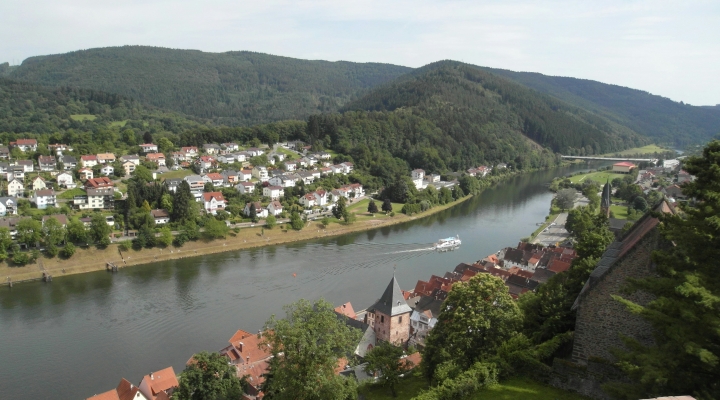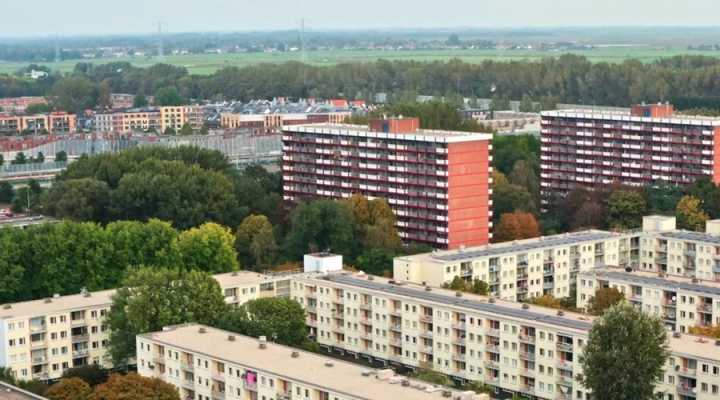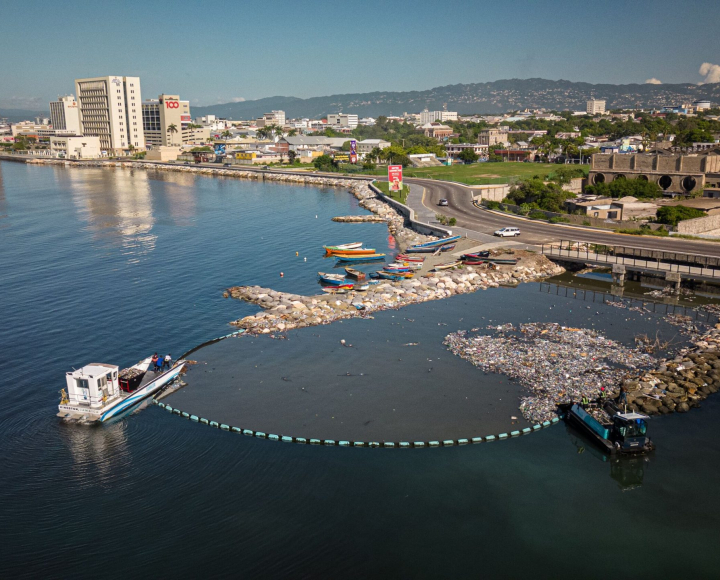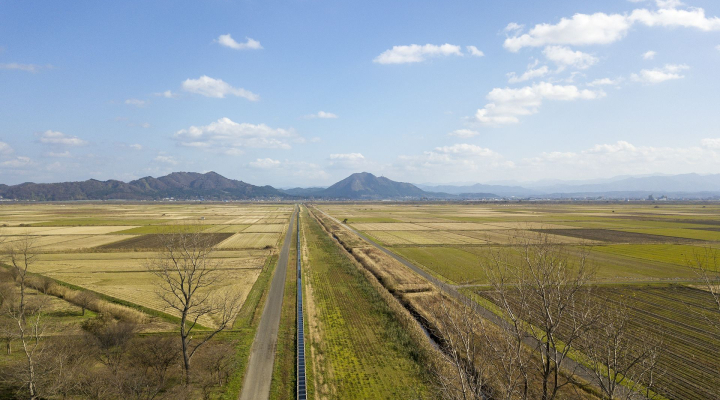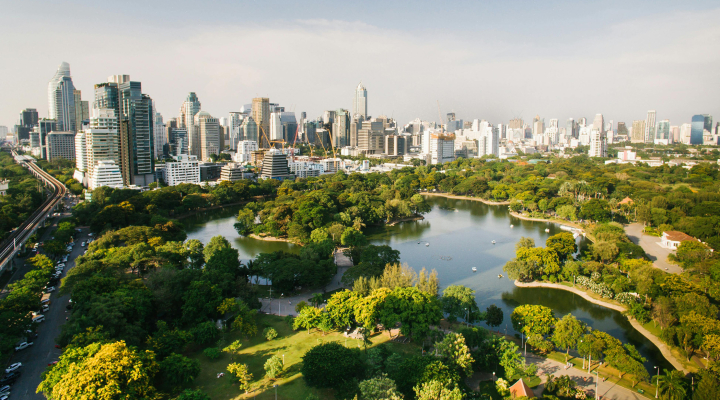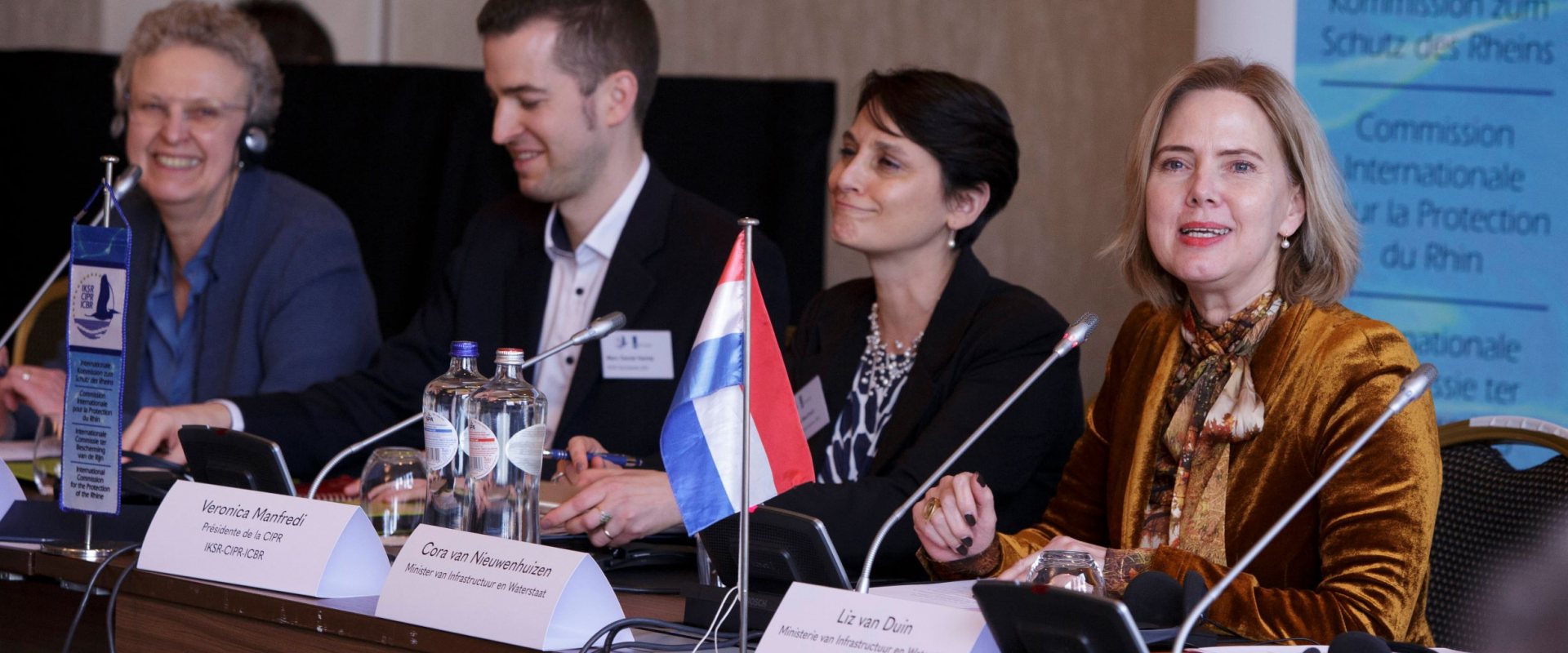
Rhine riparian states agree on ambitious river programme for 2040
The five riparian states along the river Rhine agreed on new goals for biodiversity, water quality, and climate adaptation with nature-based solutions to deal with extreme high and extreme low water levels.
The agreement was reached at the Rhine Ministers Conference that took place in Amsterdam on 13 February.
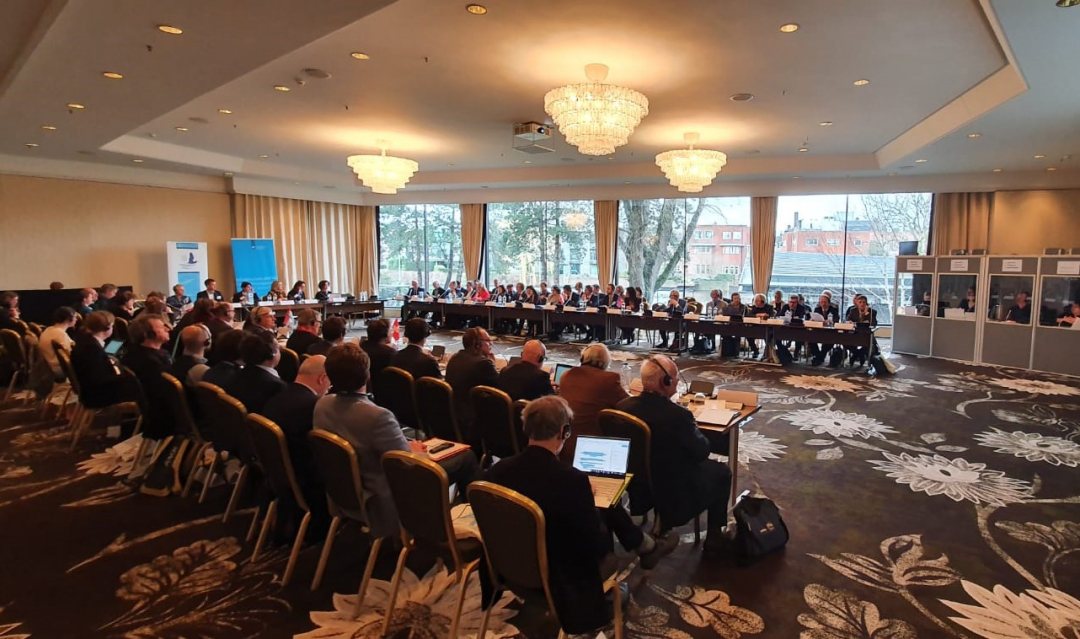

New goals
The states that share the basin of the river Rhine, Switzerland, France, Luxembourg, Germany and the Netherlands, are working together in the International Commission for the Protection of the Rhine (ICPR) for 70 years. In 2001 the commission adopted the Rhine 2020 programme. In Amsterdam the ministers set targets for the new Rhine programme 2040.
The new goals include the removal of all remaining barriers for migratory fish, preferably no later than 2027. It has also been agreed that flood risks will be further reduced by 15 percent. The emission of micro-pollutants must decrease 30 percent.
Rainwater river
The conference was chaired by Dutch minister Cora van Nieuwenhuizen. Closing the conference, she praised the delegates for setting ambitious targets: ‘A key outcome of the conference is that a new agreement has been set down to tackle the issue of drought and increasing damage by waterlogging.'
‘An important result is that the other Rhine countries will adopt a cross-border approach, similar to ours, to develop solutions to low water issues in the increasingly drier summers’, the Dutch minister said.
Sponge river
Minister Van Nieuwenhuizen mentioned that due to climate change the river Rhine is changing into a rain fed river and is becoming less a glacier fed river.
As a new theme of the conference, it was agreed that the low water levels will be better monitored and that the riparian states will jointly find ways to increase the sponge effect of the river.
Potential measures that have been discussed, included restoration of wetlands and re-connection of old river branches. This will not only improve the water quality, but it will also assure an additional water feed in periods of drought.
The last Rhine Ministers Conference was held in Basel (Switzerland) in 2013.
Full speech Dutch minister Cora van Nieuwenhuizen at the opening of the conference.




